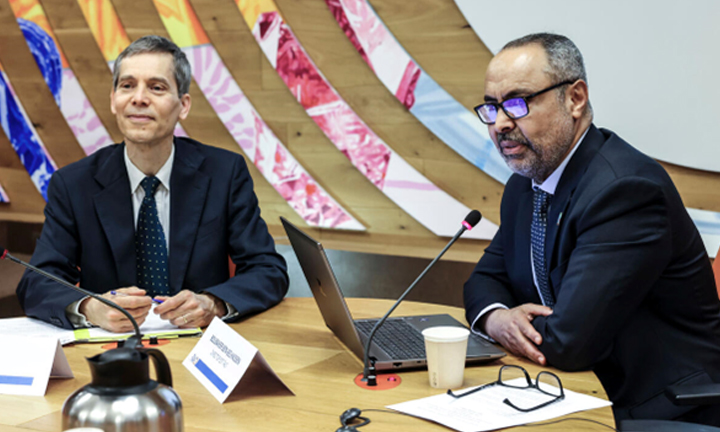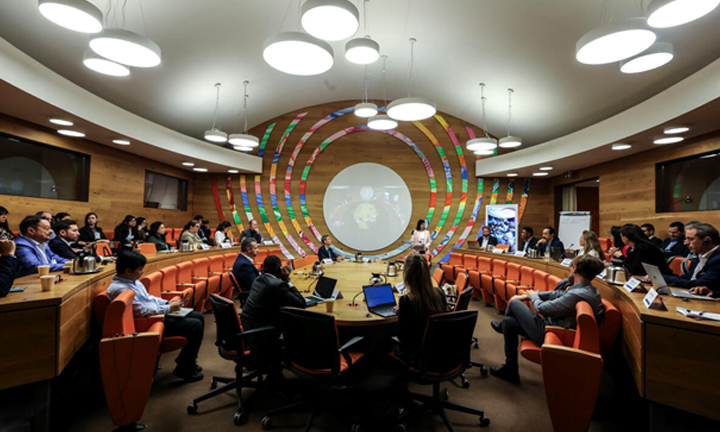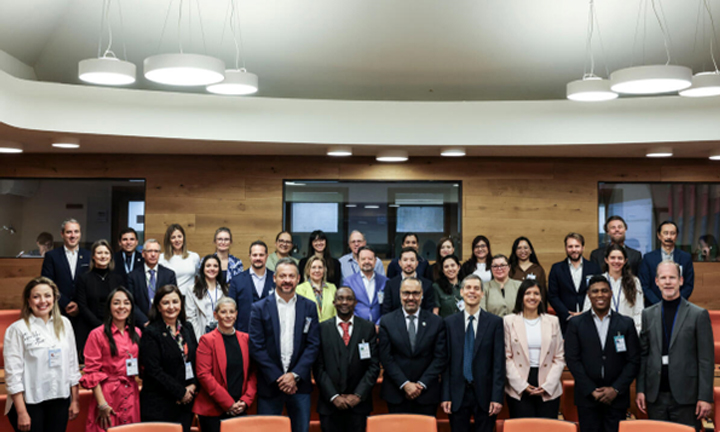FAO’s Economics and Trade Division (EST) held a 2-day workshop on ‘Resilience and Sustainability in Tropical Fruits Value Chains’ at Ethiopia Room, FAO Headquarters, Rome, Italy on 15 and 16 May 2024.
The workshop, highlight of a 3-year responsible tropical fruit value chain project which focused on avocado and pineapple, was officiated by Mr. Boubaker Ben-Belhassan, Director of Trade and Markets Division (EST), FAO. Project head and chief economist, Mr. Pascal Lui introduced and briefed on the aim of the workshop which was to gather industry stakeholders especially those in pineapple and avocado value chains to share their experiences in overcoming resilience challenges to remain sustainable, to introduce tools and resources for the industry, and to elicit feedback among industry players whether a multi stake collaborative platform for tropical fruits was needed for future collaboration.

Workshop participants comprised of industry and value chain actors, research institutions, Intergovernmental organizations, country representatives and experts from FAO. The workshop had 17 presentations and a panel discussion towards the end to chart the way forward for the project. Representatives from companies and institutions were from Columbia, Costa Rica, Dominican Republic, Germany, Kenya, Mexico, Malaysia and the Philippines. International Tropical Fruits Network (TFNet) was represented by advisor, Yacob Ahmad.
The workshop began with an introduction by FAO on an overview of trends for the global tropical fruits industry followed by the Responsible Fruits survey results to illustrate the current situation in responsible practices related to the two fruit types. The workshop continued with participants who are industry players in both the pineapple and avocado value chains explaining the challenges encountered in dealing with environmental, social and economic challenges and steps taken to mitigate them. This session dealt with climate change adaptation, degradation of natural resources, maximum residual limits (MRL) and agrochemical use.

The following session discussed social sustainability, which included smallholders’ participation in value chains, community development in waste valorization and occupational health and safety in tropical fruits industries.
The session on economic sustainability revolved around increasing cost of production on sustainability, certifications and impact on trade, market access challenges from the economic, social and environmental perspective, regional perspective from the Asia Pacific on increasing cost of production and valorization of crops residues and waste.
A session was dedicated to FAO’s tools and resources for the industry specifically on climate change adaptation, carbon and water measurement, carbon water footprint (CWF) tool for pineapple producers and packers and responsible business conduct (RBC).
The following sessions dealt with requirements for due diligence and regulations for sustainable agricultural value chains and a business handbook on deforestation and due diligence. The workshop continued with a session on collaboration among industry stakeholders involved in tropical fruit value chains, which saw inputs and perspectives from the pineapple and avocado industries, which includes the challenges in establishing a multistakeholder platform for tropical fruits that would benefit all stakeholders in the industry. The World Banana Forum is an example of a successful multistakeholder collaborative platform for members to sustain the global banana industry. Similarly, a platform for other tropical fruits would be welcome to push forward the industry’s agenda. While it may be easier to deal with banana, as it is by far the most produced and traded fruit commodity, participants agreed that there are challenges that need to be addressed and considered before pursuing a similar platform for other tropical fruits.

